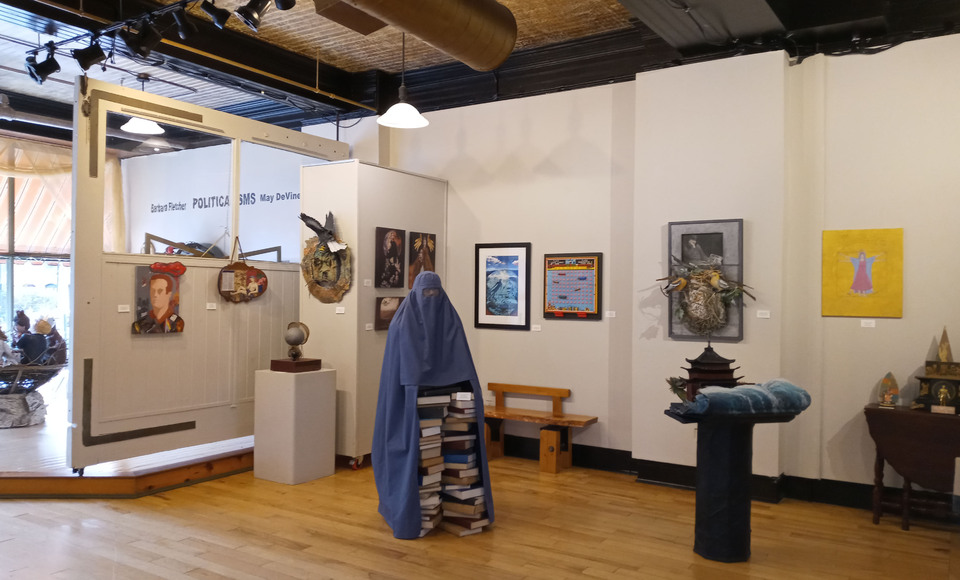May DeViney is an unrepentant Midwesterner and remains so despite having lived in widely divergent areas of the country since her youth. She attended the School of the Art Institute of Chicago where she absorbed the influences of the Chicago Imagists and iconoclastic art movements such as the Hairy Who. Hairy Who icon Jim Nutt was one of her instructors. She left school to study independently at workshops, seminars and classes under several prominent artists, most recently at the School of the Museum of Fine Arts in Boston. She has traveled throughout the United States and internationally. The experiences she has gained and her trenchant observations on the human condition are reflected in her work.
She began as a painter in oils and acrylics and her paintings have won awards in regional shows and in national competitions. But in recent years she has turned more to mixed media constructions, which frequently incorporate paintings and found elements built into three-dimensional multi-media wall pieces and sculpture. These constructions exhibit a flavor of Joseph Cornell, H. C. Westermann and Grant Wood combined with the styles of Renaissance historical and religious art. Her work has been included in juried shows at national and international levels and has been included in national publications, such as Harper’s magazine, the New York Times and on the cover of Prism magazine.
She has remained a lifelong feminist, active in women’s rights organizations, and for several years contributed art and design work to the Walk for Women’s Lives, a fundraising effort for domestic abuse shelters in the Concord, Massachusetts area.
She is also a member of an eponymous group of artists named Detritus after their chief materials, the detritus of modern life. Detritus’ art is apropos of the fact that modern life seems to be drowning in its detritus. These artists, whose spiritual organizer is New York-based artist Vernita Nemec, recycle scrap elements to sharpen their arrows aimed at modern life. Feminist and social commentary as well as gun safety and church-state separation issues are some of the targets of May DeViney’s work.
 "Politicalisms", with Barbara Fletcher, at Gallery Z, Lowell, MA
"Politicalisms", with Barbara Fletcher, at Gallery Z, Lowell, MA